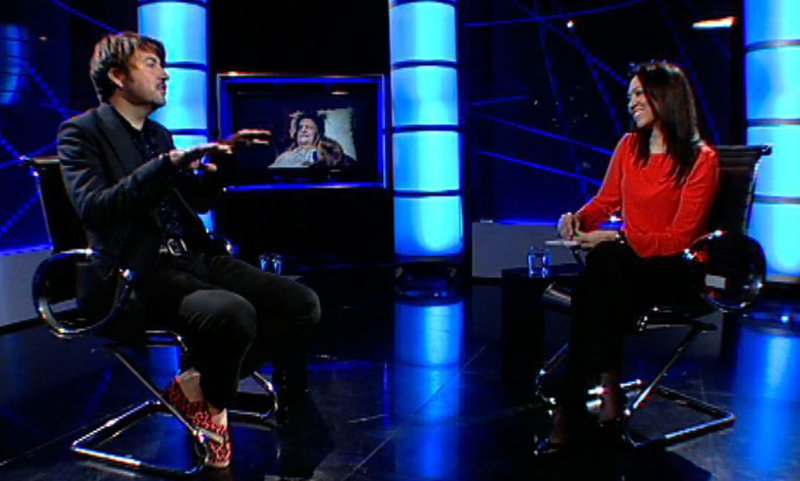Opinion
'I never expect anything'
You have just returned from the Cannes film festival, where your latest film, The Death of Louis XIV, was received with great critical acclaim.
It is probably my first film more suitable for all audiences. It's not conventional, in fact it's quite challenging, even at the level of time, because it's quite slow and long. People liked it, didn't find it too wild, or too confusing, or too abstract. It was totally unexpected, and we worked as always before, only with an artistic goal in mind, and forgetting everything else.
Your cinema has always been radical and against the stream. Is this your most conventional film so far?
The press found it the most accessible film so far, maybe because of the actors –it's the first time I've worked with a professional actor, Jean-Pierre Léaud, a mythical Nouvelle Vague actor.
The film deals with the death of Louis XIV.
Yes, it's about the last 10 to 15 days of Louis XIV's life, there is almost no political or social subjects; it's just a portrait of an agony, of the most powerful man of that time, who had to confront his power against the total impotence of illness and death. It also deals with financial crisis, spending too much money, because towards the end of the reign of Louis XIV France was almost bankrupt –in a scene he tells his great-grandson that even if you are the most powerful man in the world, if you have debts, you are dead. Debt is the worst thing, along with illness, especially if you have bad doctors.
You said that the success in Cannes made you feel ashamed.
Of course, because I always try to show people things they don't know; for me it makes no sense to give people things they already recognise as their own thinking or spiritual life. So for me, it's the duty of an artist to always create challenging, strange things that people don't know they have inside. So it was strange for me to realise the audience actually loved the film.
You didn't expect it at all?
I never expect anything, I always think that I am quite ahead of people. My idea with Jean-Pierre Léaud was to do something big. In fact the first time I met him five years ago I told him I only worked with non-professional actors, and he replied “Don't worry, I am a professional non-actor”.
What was it like to work with him?
He has a reputation for being eccentric and chaotic, which for me is a good point. Sometimes we had different ideas, but I like when actors rebel against me in shootings, it is much more interesting, I am a great fighter and I like to win, it's more fun. This is one of the main reasons I decided to be a filmmaker, to have fun.
The images of the film look like paintings.
The art director's work was important, and it was a low budget film. With high-definition cameras it is a challenge to create an old set, that doesn't look cheap, or like a TV movie. At the beginning we thought it would be easy: just one room, one space, but it was not, because it had to be very close to Versailles, to the room of Louis XIV, and we had a lot of financial and time pressure.
Where did you shoot the film?
In a castle in Dordogne, which was quite difficult and not very practical, but after all the problems, the result was worth all the effort. The film was a French-Catalan and Portuguese co-production.
Death is one of the themes you've often dealt with in your films. In this one, what other themes are important?
Power and impotence in facing illness and death. Also, the physicality of illness. There's a lot of sequences about pain –the leg of the king got infected by gangrene and by the time the doctors realised they should have amputated it, it had spread all over the body and it was too late.
When will the film be released in Catalonia?
Probably in November, and in October in France. Fortunately the film has been bought by some big distributors in the US, Canada and Japan.
Your next project is called “I am an artist”.
It's my most ambitious film so far on the level of budget, and it's about the role of a young artist in our society. A bit a synthesis of all my cinematic knowledge on the formal side, but also so far as well my own experience as an artist. I've been working in the contemporary art field, with some special works that are conceived to be watched in museums not so much in cinemas, because they are long, more difficult and more abstract, so I have some experience in this: how artists nowadays deal with society, money, success, the collective and personal creation. I will work not with actors, but with famous people, playing the themselves, because the idea of success versus failure is a very important point.
Albert Serra Each Wednesday at 7.10 pm, El Punt Avui TV airs the series of interviews, Catalan Connections. Marcela Topor talked to the filmmaker Albert Serra about his latest film, The Death of Louis XIV.
Leave a comment
Sign in.
Sign in if you are already a verified reader.
I want to become verified reader.
To leave comments on the website you must be a verified reader.
Note: To leave comments on the website you must be a verified reader and accept the conditions of use.





